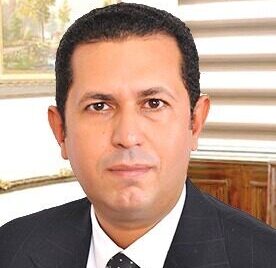Successive global crises have disrupted international food chains and caused food prices to rise dramatically.
This is why Egypt’s vision focuses exclusively on implementing mega-agricultural reclamation projects, an effort aiming at boosting food security.
It all started seven years ago, when the Egyptian government embarked on a series of major agricultural projects.
The Future of Egypt is one of these expansive agriculture projects. It aims to increase national agricultural output, achieve self-sufficiency in what are known as ‘strategic crops’ (crops heavily consumed by the Egyptian population, such as cereals and legumes), reduce pressure on foreign currency reserves for the import of food, and create direct and indirect jobs for local workers.
This project is of utmost importance in the light of the incessant growth of our country’s population, expected to become 180 million in 2050.
This gigantic agricultural project also aims to shield Egypt’s food security against international fluctuations and raise the national income by maximising production opportunities.
In the past seven years, Egypt made miracles as far as the size of reclaimed desert land is concerned.
In 2018, it succeeded in reclaiming 30,000 acres of land. By 2023, this reclaimed space rose to 600,000 acres and in 2024, the same space rose to 800,000 acres. Egypt aspires to raise this reclaimed space to 1.6 million acres by 2025 and 4.5 million acres by 2027.
The Future of Egypt project enjoys tremendous support from President Abdel Fattah El Sisi who works tirelessly to ensure the provision of the necessary facilities and services to the project, especially electricity and water. The president also works to ensure that the project is well connected with the national road network.
President Sisi called for completing agricultural development projects in places like Fayoum, Minya, and Beni Suef. He also called for finalising the Sanabel Sono and the Dakhla projects in southern Egypt.
These projects align with the state’s objective to make high-quality produce available at the local market at affordable prices, increase the exports and boost food security.
President Sisi lays out a clear vision for the transition from food importation to self-reliance.
This is why his administration works tooth and nail to ramp up the production of strategic commodities, such as wheat; maize; beet, and rice, to provide the local market with its needs.
This strategy is a viable mechanism for the enhancement of our country’s food security and confronting global fluctuations, including the disruption of international food chains and the rise in the exchange rate of the US dollar against the Egyptian pound.
The Egyptians are transforming their country’s desert into a green paradise, despite the scorching heat of the sun and the harsh nature of life in the desert.
Together with other similar projects, the Future of Egypt can protect Egypt’s food security and achieve self-sufficiency in the production of food.
This project is a dream coming true with the will and the determination of Egypt’s people and political leadership.
Mohamed Fahmy is the editor-in-chief of The Egyptian Gazette and Egyptian Mail newspapers






Discussion about this post